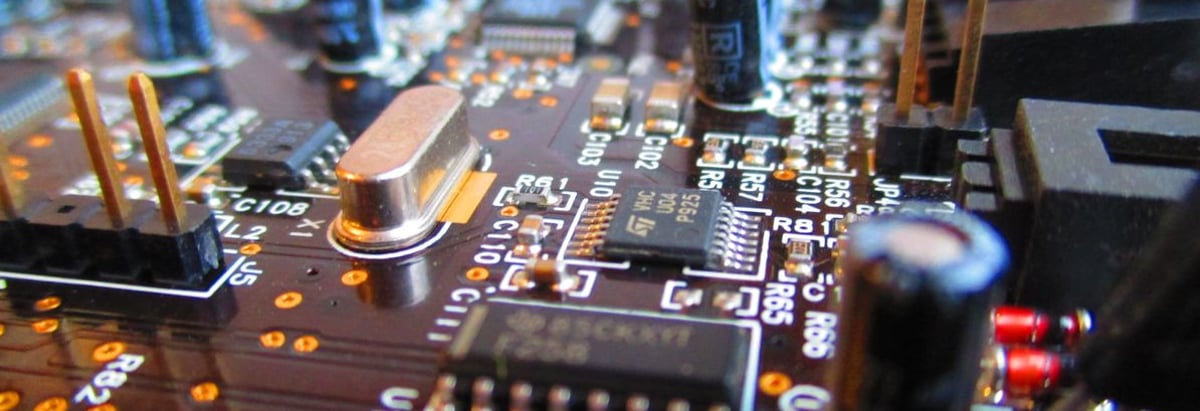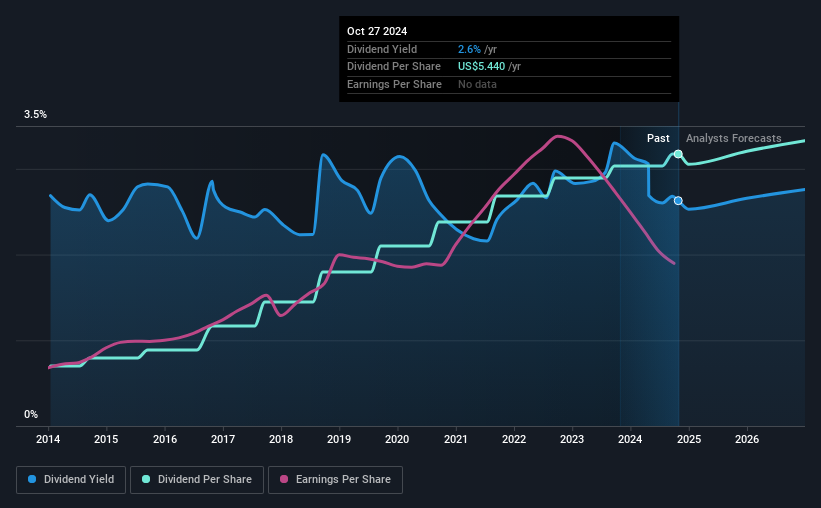- United States
- /
- Semiconductors
- /
- NasdaqGS:TXN
Why It Might Not Make Sense To Buy Texas Instruments Incorporated (NASDAQ:TXN) For Its Upcoming Dividend

Readers hoping to buy Texas Instruments Incorporated (NASDAQ:TXN) for its dividend will need to make their move shortly, as the stock is about to trade ex-dividend. The ex-dividend date occurs one day before the record date which is the day on which shareholders need to be on the company's books in order to receive a dividend. The ex-dividend date is important as the process of settlement involves two full business days. So if you miss that date, you would not show up on the company's books on the record date. Therefore, if you purchase Texas Instruments' shares on or after the 31st of October, you won't be eligible to receive the dividend, when it is paid on the 12th of November.
The company's next dividend payment will be US$1.36 per share. Last year, in total, the company distributed US$5.44 to shareholders. Last year's total dividend payments show that Texas Instruments has a trailing yield of 2.6% on the current share price of US$206.93. Dividends are a major contributor to investment returns for long term holders, but only if the dividend continues to be paid. As a result, readers should always check whether Texas Instruments has been able to grow its dividends, or if the dividend might be cut.
Check out our latest analysis for Texas Instruments
Dividends are usually paid out of company profits, so if a company pays out more than it earned then its dividend is usually at greater risk of being cut. Texas Instruments paid out 96% of its earnings, which is more than we're comfortable with, unless there are mitigating circumstances. Yet cash flow is typically more important than profit for assessing dividend sustainability, so we should always check if the company generated enough cash to afford its dividend. It paid out an unsustainably high 323% of its free cash flow as dividends over the past 12 months, which is worrying. Unless there were something in the business we're not grasping, this could signal a risk that the dividend may have to be cut in the future.
As Texas Instruments's dividend was not well covered by either earnings or cash flow, we would be concerned that this dividend could be at risk over the long term.
Click here to see the company's payout ratio, plus analyst estimates of its future dividends.

Have Earnings And Dividends Been Growing?
Stocks with flat earnings can still be attractive dividend payers, but it is important to be more conservative with your approach and demand a greater margin for safety when it comes to dividend sustainability. If earnings decline and the company is forced to cut its dividend, investors could watch the value of their investment go up in smoke. It's not encouraging to see that Texas Instruments's earnings are effectively flat over the past five years. We'd take that over an earnings decline any day, but in the long run, the best dividend stocks all grow their earnings per share.
Many investors will assess a company's dividend performance by evaluating how much the dividend payments have changed over time. In the past 10 years, Texas Instruments has increased its dividend at approximately 16% a year on average.
The Bottom Line
Is Texas Instruments an attractive dividend stock, or better left on the shelf? Not only are earnings per share flat, but Texas Instruments is paying out an uncomfortably high percentage of both its earnings and cashflow to shareholders as dividends. With the way things are shaping up from a dividend perspective, we'd be inclined to steer clear of Texas Instruments.
Having said that, if you're looking at this stock without much concern for the dividend, you should still be familiar of the risks involved with Texas Instruments. Every company has risks, and we've spotted 2 warning signs for Texas Instruments (of which 1 can't be ignored!) you should know about.
If you're in the market for strong dividend payers, we recommend checking our selection of top dividend stocks.
Valuation is complex, but we're here to simplify it.
Discover if Texas Instruments might be undervalued or overvalued with our detailed analysis, featuring fair value estimates, potential risks, dividends, insider trades, and its financial condition.
Access Free AnalysisHave feedback on this article? Concerned about the content? Get in touch with us directly. Alternatively, email editorial-team (at) simplywallst.com.
This article by Simply Wall St is general in nature. We provide commentary based on historical data and analyst forecasts only using an unbiased methodology and our articles are not intended to be financial advice. It does not constitute a recommendation to buy or sell any stock, and does not take account of your objectives, or your financial situation. We aim to bring you long-term focused analysis driven by fundamental data. Note that our analysis may not factor in the latest price-sensitive company announcements or qualitative material. Simply Wall St has no position in any stocks mentioned.
About NasdaqGS:TXN
Texas Instruments
Designs, manufactures, and sells semiconductors to electronics designers and manufacturers in the United States, China, rest of Asia, Europe, Middle East, Africa, Japan, and internationally.
Adequate balance sheet with moderate growth potential.
Similar Companies
Market Insights
Community Narratives



